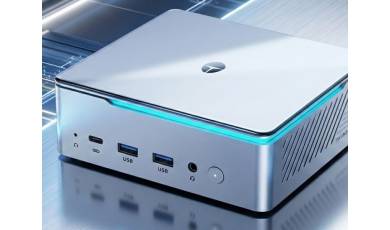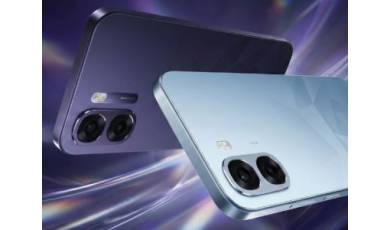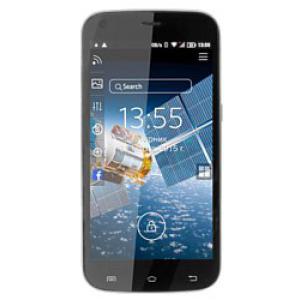Flash firmware on Jinga Basco L3
Mobiles >> Jinga >> Jinga Basco L3| Specifications | Reviews | Secret codes |
| Unlock phone | Root phone |
| Backup | Flash Firmware | Screenshot |
How to flash Jinga Basco L3?
Why reinstall the firmware?
Errors in the operation of the Android OS begin to appear.
Some applications stop opening.
Many programs from the Play Market do not work.
The phone restarts for no reason.
The phone slows down a lot during operation.
You want to update your firmware.
Where can I find the firmware?
On the official Internet resource of the phone manufacturer.
On sites where developers post custom or official OS.
What should be done before installing the firmware?
Back up your phone's user data.
Insert an SD card into the gadget. It must have enough memory for the firmware.
Remember your smartphone model.
Charge your phone fully.
Download archive with Firmware. Place it on the SD card.
Installing TWRP Recovery
Download the Official TWRP App from the Play Market. And install it.
At the first start, you need to give consent to future manipulations, as well as consent to granting the Superuser rights to the application. Check the checkboxes and press the 'OK' button.
After moving to the next screen, select the 'TWRP FLASH' item and provide the application with root rights.
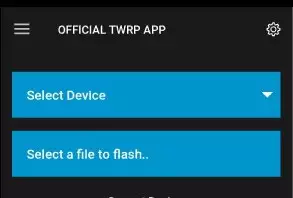
On the main screen of the application, select 'Select Device', and find your phone model.
After selecting the phone, the application will redirect the user to a web page to download the modified recovery environment image file. Download the proposed *.img file.
After downloading the image file, return to the main screen of the Official TWRP App and press the 'Select a file to flash' button. Select the file downloaded in the previous step.
Click the 'FLASH TO RECOVERY' button and confirm your choice, click 'OK' in the question window.
The recording process is very fast, and upon completion, the message 'Flash Completed Succsessfuly!' appears. Click 'OK'. The TWRP installation procedure can be considered complete.
Write the firmware to the SD card. Using a PC or laptop card reader.
Insert a memory card into the phone.
To reboot into recovery, you need to use a special item in the Official TWRP App menu, accessible by pressing the button with three stripes in the upper left corner of the main screen of the application. We open the menu, select the 'Reboot' item, and then click on the 'REBOOT RECOVERY' button. The phone will reboot into the recovery environment automatically.
Firmware via TWRP
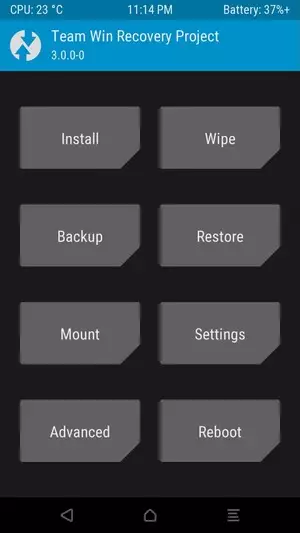
Before flashing, it is recommended to clear the 'Cache' and 'Data' sections. This will delete all user data from the device, but avoid a wide range of software errors and other problems. You must press 'WIPE' on the main screen.
Now you can start flashing. Press the 'Install' button.
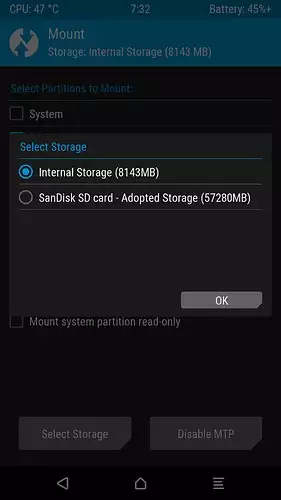
The file selection screen appears. At the very top is the 'Storage' button, select the location where the firmware file is located.
Select the location where the files were copied. Press the 'OK' button.
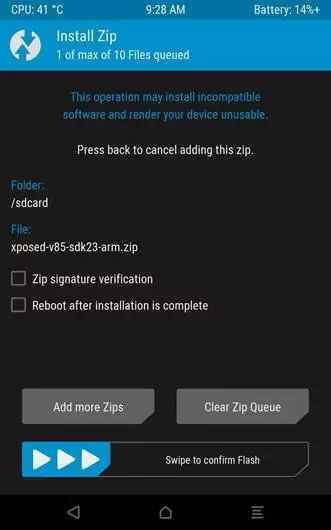
Select the firmware file and click on it. A screen opens with a warning about possible negative consequences, as well as the item 'Zip signature verification'. This item should be checked by placing a cross in the check-box, which will avoid using damaged files when writing to the phone's memory sections.
The procedure for writing files to the phone's memory will begin, accompanied by logging and filling in the progress bar.
The completion of the firmware installation procedure is indicated by the inscription 'Successful'.
Summary: Type: smartphone; Band: 3G (UMTS), GSM 900, GSM 1800, GSM 1900; Platform: Android; Smart Phone OS: Android 4.4; Processor: MediaTek MT6582; Number of processor cores: 4; CPU frequency: 1 300 MHz; GPU: Mali-400 MP2; RAM: 1 024 Mb; Internal RAM: 8 GB; Memory Card Slot: yes; Memory card support: microSD (TransFlash), micro SDHC; The maximum amount of memory card: 32 GB; Year of issue: 2015; Dimensions (WxHxT): 145x68.7x9x140 mm; Enclosure type: classic; Housing material: plastic; The number of SIM-cards: 2; SIM: Mini-SIM+Micro-SIM; Fingerprint: no; Water resistant: no; Shock-resistant enclosure: no; Color screen: yes; Screen type: IPS; The number of screen colors: 16 777 ...
Comments, questions and answers on the flash firmware Jinga Basco L3
Ask a question about Jinga Basco L3


